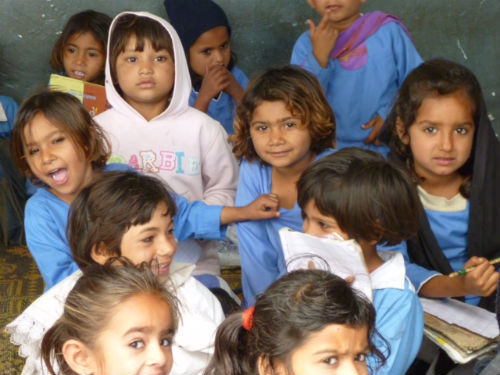
I had the pleasure of talking to Sir Michael Barber (Chief Education Advisor, Pearson) who is a leading authority on education systems and education reform. Barber’s recently published report, The Good News from Pakistan, showcases the revolutionary reform in Punjab – an initiative that posed one of the greatest challenges to education improvement in the world.
Sir Michael (Britain’s Special Representative on Education in Pakistan) who notably served as a Chief Advisor to Tony Blair, demonstrated in a heroic example of education leadership that even the most difficult jobs, when met with rigorous responsibility, can be completed with effective results. Pakistan is not only looking up, with more students completing education programs, but is also showing it’s own leadership, and thus growing independently from external aid. Sir Michael shared what he learned from this process and some of the facts about how he accomplished this feat in the dialogue that follows.

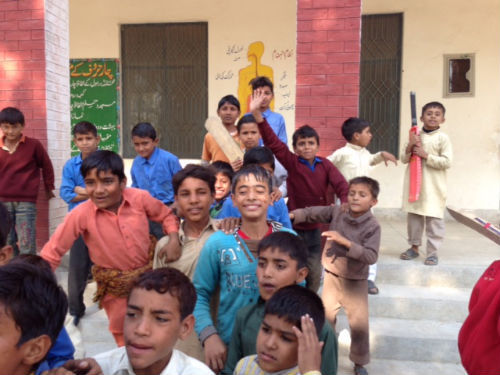
What made you call Pakistan, when you first approached your job, the biggest education reform challenge on the planet?
One reason was just the sheer scale: estimates vary, but there are somewhere between 25 and 30 million children and between 300,000 and 400,000 teachers in Punjab, Pakistan. The numbers in Pakistan as a whole are double that. Another is that Pakistan is a place ridden with crises and complexity, given just the security challenges alone. Punjab had just had a flood; that’s not the first time that’s happened. They’ve got a whole variety of health challenges; they’ve got a water challenge; they’ve got an energy challenge. And then the politics have been complicated throughout. So put together all of those things — the scale plus all the challenges that Pakistan faces in society, and all of those things distract the politicians.
Your report shows immense statistical improvements in its education system, including improved attendance and teacher presence. What changes for you have been the most crucial?
A major factor of our success has been improved management at every level. We had good, focused attention from the chief minister and a really good team of officials in Lahore, the capital of Punjab, overseeing a team of about 10 or 12 officials that any UK government or any US state would be proud to have running their education report. The districts, the top officials, and the top education officials are now all appointed on merit. So a really big part of it, that’s very important, is just improving the management, or what I call a “delivery chain.”
The second thing is getting regular monthly data from all the 60,000 schools of Punjab. We use that data to drive action, so if we see that one of the 36 districts is underperforming in one of the indicators, we try to find out why that is and solve that problem with them. So great management and real time data.

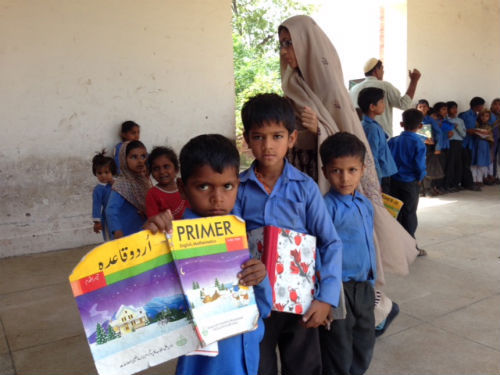
Was there any particular thing that surprised you or caught you by surprise that you were able to change but just seemed impossible at the beginning?
That’s a great question. We had many setbacks and challenges. I always thought that one of the big problems in Pakistan would be that in the people’s heads, they really didn’t think things could change. My personal job was never to doubt that we could do this. So I always expressed confidence, but probably the thing that I’m most excited about is the new confidence and belief that the people have that they can change things.
That’s great. It is amazing the kind of change you can bring about once people are inspired by a compelling cause. How important are the roles of national governments and international federations such as the World Bank to education reform in struggling countries?
In Pakistan, education is a provincial not a federal issue. Provincial government is fundamental. It’s very, very difficult to do something like this without good political leadership. So the chief minister, Shahbaz Sharif, has to make tough decisions and he has to stick with it even when he’s distracted by political crises. So political leadership and then building a government machine that can deliver are essential. The international aid agencies (such as the British Department for International Development) have been crucial for this endeavor. The World Bank has been cautiously supportive and they put some money into it. But it is also really important to note that their money totaled up is only about five percent of the total Punjab education budget. The key things are the commitment of the chief minister and his team, and on our side, the expertise and the ability to assemble the evidence from around the world. And then the support that takes the chief minister and the system through the difficult positions. So we’re at his side. We’re like a rock that he can depend on. In the end, that’s the most important thing. In the end, the chief minister of Punjab is a proud man. In his perfect world, he wouldn’t need aid. He really appreciates the support of the aid agencies but what he wants ultimately is for Punjab to be able to run itself. So we see a big part of our job as building the capacity of the Punjab government to support itself. I often say that, as much as I love going to Pakistan, I would be delighted if there’s a time when I don’t need to go anymore.

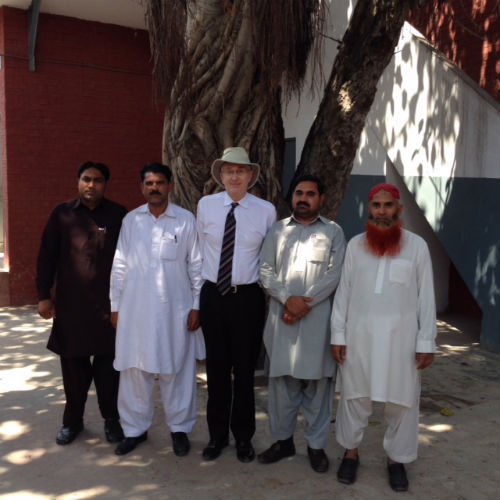
Where does Pakistan’s educational system stand now in terms of effectiveness, in your opinion? And what further progress or changes at this point do you feel need to be made, looking forward?
It’s still a very poor system in terms of national benchmarking. It’s still far short of what it needs to be. The chief minister and all his officials are totally aware of that. So it’s got a long way to go. I would say that what the chief minister and his team have done is take a system that was really, really poor and make it better. But there’s much more to do to build the capacity of teachers to teach great lessons every time. They’ve got much better textbooks, they’ve got lesson plans, but the sophistication of the lesson plans, really delivering high quality lessons on a regular basis, and the whole approach to continuous teacher development that you see in the better developed systems, we haven’t quite got that working the way we need to yet. That’s a big focus at the moment.
Has new technology played an important role in the reform process?
It’s not been a major part of the strategy at all: 900 ex-army guys on motorbikes collected the data by paper, going from school to school. But now that is going digital, which will be great, we’ll get the data in real time as they collect it. So there’s technology at that level. In the classroom, one of the objectives has been merely to get electricity in every school. We’ve got close to that now. One experiment we have done is to have a truck deliver digital pads for a morning or afternoon to schools and project a lesson from an expert teacher. This is a more economical option than just giving every school a lot of computers, since it can reach each school by traveling, and computers are often not used at all times during the school day. There is also, in Punjab, the Punjab Information Technology Board, which is a very well led organization and it’s bringing many new projects to fruition. So we’re beginning to use technology for the teacher development process, we’re beginning to use it in the data collection process, and we’re beginning to experiment with it in the education process, but so far it hasn’t been central.
For More Information: http://www.reform.co.uk/wp-content/uploads/2014/10/The_good_news_from_Pakistan_final.pdf
http://www.dailymotion.com/video/x1amf6m_punjab-pakistan-education-reform-roadmap_news

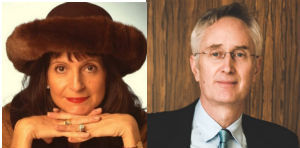
(All photos are courtesy of Sir Michael Barber’s The Good News from Pakistan)
Join me and globally renowned thought leaders including Sir Michael Barber (UK), Dr. Michael Block (U.S.), Dr. Leon Botstein (U.S.), Professor Clay Christensen (U.S.), Dr. Linda Darling-Hammond (U.S.), Dr. MadhavChavan (India), Professor Michael Fullan (Canada), Professor Howard Gardner (U.S.), Professor Andy Hargreaves (U.S.), Professor Yvonne Hellman (The Netherlands), Professor Kristin Helstad (Norway), Jean Hendrickson (U.S.), Professor Rose Hipkins (New Zealand), Professor Cornelia Hoogland (Canada), Honourable Jeff Johnson (Canada), Mme. Chantal Kaufmann (Belgium), Dr. EijaKauppinen (Finland), State Secretary TapioKosunen (Finland), Professor Dominique Lafontaine (Belgium), Professor Hugh Lauder (UK), Professor Ben Levin (Canada), Lord Ken Macdonald (UK), Professor Barry McGaw (Australia), Shiv Nadar (India), Professor R. Natarajan (India), Dr. Pak Tee Ng (Singapore), Dr. Denise Pope (US), Sridhar Rajagopalan (India), Dr. Diane Ravitch (U.S.), Richard Wilson Riley (U.S.), Sir Ken Robinson (UK), Professor PasiSahlberg (Finland), Professor Manabu Sato (Japan), Andreas Schleicher (PISA, OECD), Dr. Anthony Seldon (UK), Dr. David Shaffer (U.S.), Dr. Kirsten Sivesind (Norway), Chancellor Stephen Spahn (U.S.), Yves Theze (LyceeFrancais U.S.), Professor Charles Ungerleider (Canada), Professor Tony Wagner (U.S.), Sir David Watson (UK), Professor Dylan Wiliam (UK), Dr. Mark Wormald (UK), Professor Theo Wubbels (The Netherlands), Professor Michael Young (UK), and Professor Minxuan Zhang (China) as they explore the big picture education questions that all nations face today.
The Global Search for Education Community Page
C. M. Rubin is the author of two widely read online series for which she received a 2011 Upton Sinclair award, “The Global Search for Education” and “How Will We Read?” She is also the author of three bestselling books, including The Real Alice in Wonderland, is the publisher of CMRubinWorld, and is a Disruptor Foundation Fellow.
Follow C. M. Rubin on Twitter: www.twitter.com/@cmrubinworld



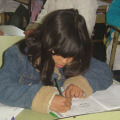
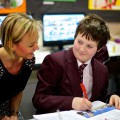
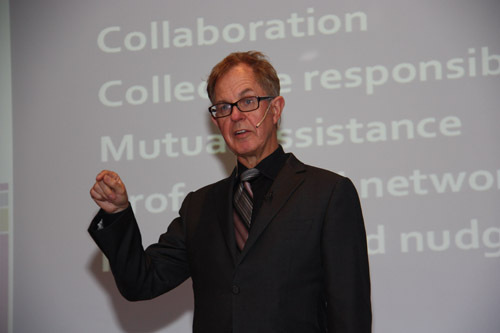
Recent Comments